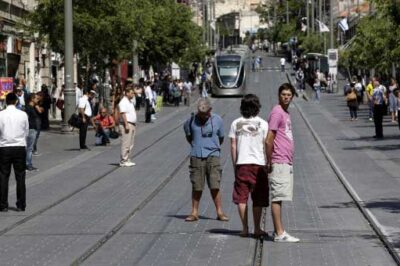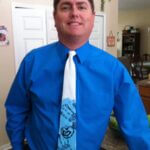Today, Monday, April 28, is Israeli Holocaust Remembrance Day, Yom HaShoah. It is a sacred day in memory of the 6 million Jews who died in the Holocaust.
The day is being marked with many ceremonies, all with the Israeli national flag flying at half-mast. At 10 a.m. Israeli time, sirens sounded throughout Israel for two minutes, and people were instructed to cease all activity, even stopping their cars in the middle of the street, in order to stand at attention in silent tribute to the dead.
Silence of the Bystanders
A day of remembrance, like Yom HaShoah, is not only important for remembering those who lost their lives, but for subsequent generations to learn the important lessons that will keep such a tragedy from happening again. One lesson any student of the Holocaust learns is that most of the bystanders and onlookers were silent.
Survivor Elie Wiesel said, “What hurts the victim the most is not the cruelty of the oppressor but the silence of the bystander.”
The Holocaust could never have happened had it not been for the silence of the onlookers. Hence, the lesson is clear: to never be silent again.
Tolerating Hate
Another valuable lesson is that movements of hatred must not be tolerated. The most unifying motivator in mass movements is finding a common enemy to hate and demonize. Hitler understood that by using the Jewish people as the ideal devil, he could unify Germany and deflate the resistance of the surrounding countries he intended to occupy.
Leaders throughout the Middle East, particularly Iran, understand the power of mass hatred today and have been using the Jewish people as scapegoats for decades. It must be stopped.
Anti-Semitism is the world’s early warning system and acts as a “canary in the mineshaft,” warning that a Pandora’s box of death and destruction is about to be opened and that it will not end with the Jews. Not only did 6 million Jews die, but also some 50 million people lost their lives in World War II. In recent years, the world has experienced a drastic increase in anti-Semitic incidents, a clear warning of troubles ahead for anyone who is paying attention.
For the Christian world, there is a particularly somber lesson to be learned from Yom HaShoah. While Christianity did not cause nor carry out the Nazi regime’s murder of millions of Jews, some of the church fathers’ teachings, and the centuries of hatred they instilled, prepared the way for the silence of the bystanders and the Holocaust itself. So beyond learning, our remembrance must include sorrow and repentance.
Those Who Did the Right Thing
Remembrance also allows us to honor those who did stand up and do the right thing, such as those in Jewish resistance movements, rescuers who risked their lives in order to save Jews, and the liberators who freed those remaining in the Nazi death camps.
I am the proud daughter of a WWII veteran who liberated the slave-labor camp Flossenburg. The photos that were taken the day his company entered the camp and encountered thousands of starved bodies—both dead and dying—are proof of the evil he fought to defeat.
There are many Americans who descend from that “Greatest Generation” who fought, and died, bringing down the Nazi regime. Most of them are no longer living; therefore, their children and grandchildren must tell the world what they saw and what they fought for. There is a current anti-Semitic campaign to trivialize and even deny the Holocaust. It is our duty to remind the world about the sacrifice many American fathers and grandfathers made, and the atrocities they witnessed in the camps.
Comforting Survivors
Lastly, remembering will bring great comfort to the hundreds of thousands of remaining Holocaust survivors. For this reason, we encourage Christians to join with their local Jewish communities for Holocaust remembrance events. They are so encouraged by someone who will take the time to learn these painful lessons, teach others what they have learned, and not be silent!
Remembering the Holocaust is a painful and sobering experience but essential to ensuring it will never happen again.
Susan Michael is U.S. director of the International Christian Embassy Jerusalem, which is a partner with Yad Vashem, Israel’s Holocaust Memorial and Remembrance Center, in teaching the Christian community to recognize anti-Semitism today and to stand against it.








Leave a Comment
You must be logged in to post a comment.